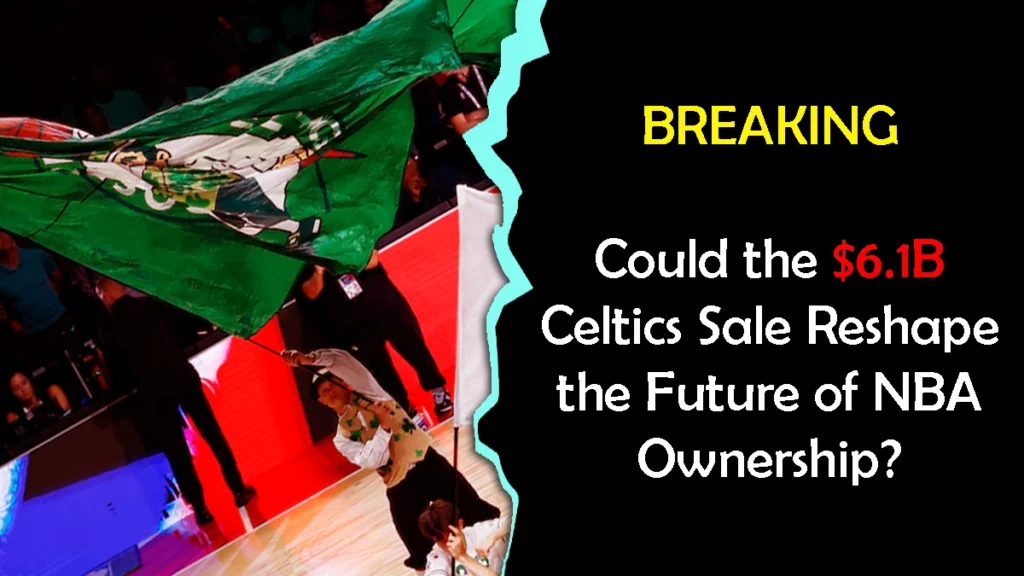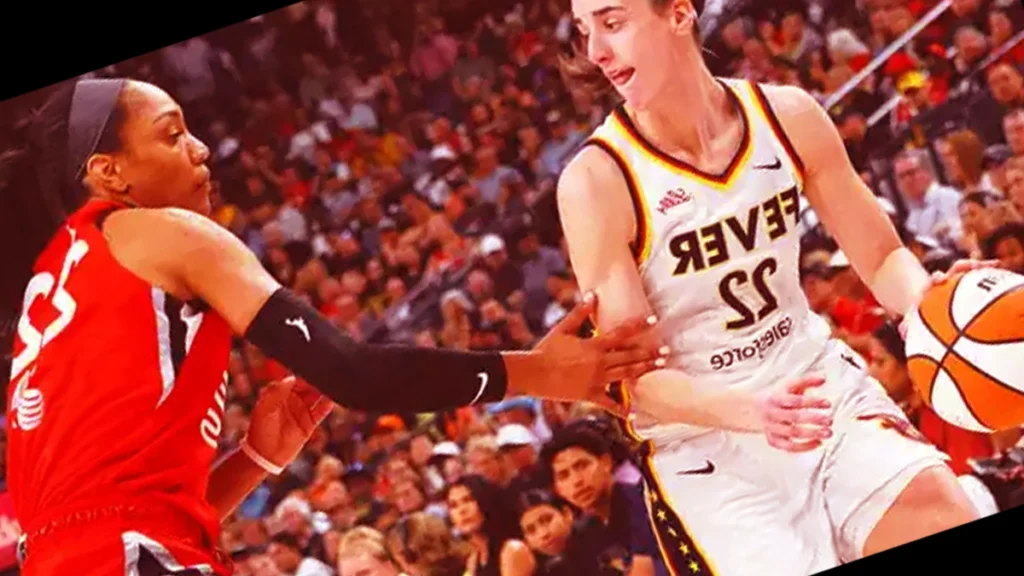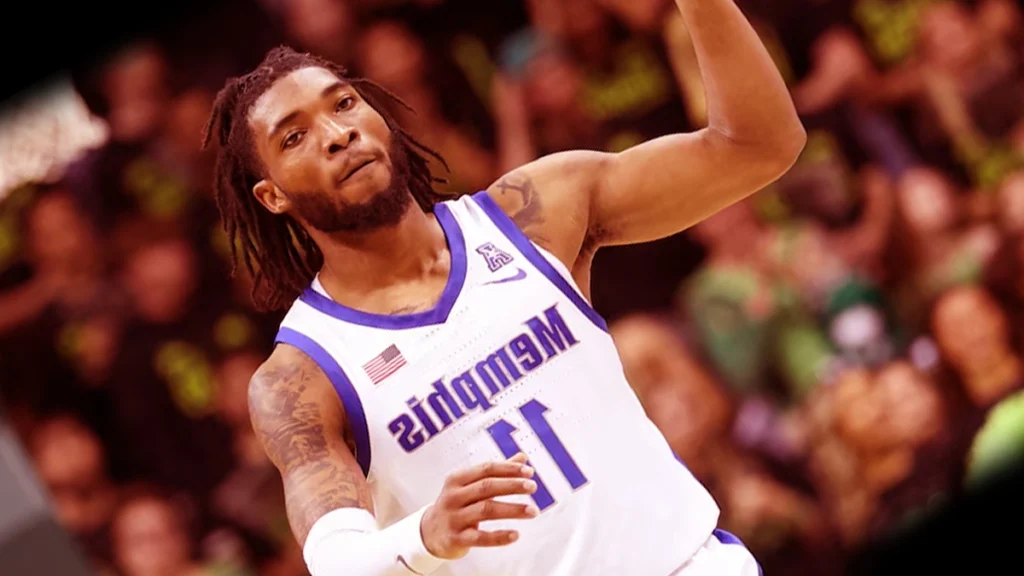
Historic Deal Shatters North American Sports Records as Championship Franchise Changes Hands
In a seismic shift for professional sports ownership, the Boston Celtics—fresh off their record-setting 18th NBA championship—have agreed to a landmark $6.1 billion sale that will send shockwaves through the sports business world for years to come.
The transaction, announced Thursday by the storied franchise, transfers control to a group spearheaded by William Chisholm, co-founder of Symphony Technology Group, a private equity powerhouse with a history of transformational investments. This deal, pending NBA Board of Governors approval, doesn’t just change ownership—it redefines the entire economic landscape of professional sports in North America.
Breaking the Bank: A New Valuation Benchmark
The $6.1 billion price tag shatters the previous North American sports franchise record set just two years ago when the NFL’s Washington Commanders sold for $6.05 billion. This milestone raises profound questions about basketball franchise valuations and the future trajectory of sports team investments.
Sports business analysts are already speculating about the ripple effects this valuation will have across not just the NBA, but all major sports leagues. With franchise values climbing to unprecedented heights, the barriers to entry for potential owners continue to skyrocket, potentially limiting ownership to only the wealthiest individual investors and institutional capital groups.
“What we’re witnessing is the normalization of the multi-billion dollar franchise,” explains one industry expert. “The days of the mere billionaire casually purchasing a team are rapidly disappearing. We’re entering an era where only consortiums of ultra-high-net-worth individuals or massive private equity groups can afford entry into this exclusive club.”
Local Roots Run Deep
Unlike many headline-grabbing acquisitions that bring outsiders into local sports cultures, this transition has deep Boston connections. Chisholm, the leading figure in the purchasing group, has authentic ties to the region that may help smooth what could otherwise be a jarring ownership change for one of sports’ most passionate fanbases.
“Growing up on the North Shore and attending college in New England, I have been a die-hard Celtics fan my entire life,” Chisholm explained in his first statement as the team’s future controlling owner. His background suggests an intimate understanding of what the franchise means to the region—a crucial factor for a team so deeply woven into the fabric of Boston’s identity.
Chisholm’s comments acknowledge the unique position the Celtics hold in Boston’s cultural ecosystem: “I understand how important the Celtics are to the city of Boston – the role the team plays in the community is different than any other city in the country. I also understand that there is a responsibility as a leader of the organization to the people of Boston, and I am up for this challenge.”
This local connection may prove invaluable as the franchise navigates its first significant ownership change in decades.
Continuity Through Transition
In a move designed to ensure stability through this monumental change, current majority owner Wyc Grousbeck will remain in his roles as Celtics CEO and Governor through the 2027-2028 NBA season. This extended transition period—unusual in major sports team sales—provides a three-year runway for organizational knowledge transfer while maintaining operational consistency.
“Bill is a terrific person and a true Celtics fan, born and raised here in the Boston area,” Grousbeck noted in the official announcement. “His love for the team and the city of Boston, along with his chemistry with the rest of the Celtics leadership, make him a natural choice to be the next Governor and controlling owner of the team.”
The ownership group will also include other significant Boston business figures with local ties. Rob Hale, a current Celtics owner, will maintain his stake in the franchise, while Bruce A. Beal Jr., a prominent Boston business executive and philanthropist, joins the ownership consortium. This blend of existing and new ownership interests further supports a measured transition approach.
Championship Momentum
The timing of this announcement—following the franchise’s historic 18th NBA championship that broke their deadlock with the Los Angeles Lakers for most titles in league history—couldn’t be more significant. The team is selling at perhaps its highest possible valuation point, with championship momentum and a roster built for sustained success.
When the Celtics first announced their intention to sell last July, immediately after securing banner #18, speculation ran rampant about whether the franchise would maintain its competitive edge through an ownership transition. Thursday’s announcement, with its emphasis on operational continuity and local connections, appears designed to address those concerns directly.
The championship core remains intact, with the front office leadership that constructed the roster still firmly in place. The extended Grousbeck transition period ensures that basketball operations should proceed without disruption through at least three more championship windows.
Private Equity’s Growing Sports Footprint
Chisholm’s background with Symphony Technology Group highlights another significant dimension of this transaction—the continuing integration of private equity into professional sports ownership structures. While the NBA has opened its doors to institutional investors more cautiously than some other leagues, this high-profile acquisition represents a major step in that direction.
Symphony Technology Group, though not directly involved in the purchase, provides the background for Chisholm’s wealth and investment philosophy. The firm specializes in software and technology investments, with billions in assets under management and a reputation for operational transformation of portfolio companies.
This technology-focused investment background may signal future innovations in how the Celtics approach their business operations, fan engagement strategies, and technology integration throughout the organization. In an era where digital transformation is reshaping the sports fan experience, Chisholm’s background could potentially accelerate the Celtics’ evolution in these areas.
The Legacy Continues
For Celtics fans, perhaps the most reassuring aspect of this announcement is the clear emphasis on respecting and continuing the franchise’s unparalleled legacy. From Chisholm’s personal connection to the team to the structured transition plan, every element of the deal appears crafted to honor the unique position the Celtics hold in basketball history.
With 18 championship banners hanging from the rafters and a roster constructed to contend for more in the immediate future, the transaction comes at a moment of strength rather than weakness. The $6.1 billion valuation reflects not just the team’s current success, but the decades of tradition and excellence that make the Celtics one of sports’ most recognized global brands.
As the NBA’s most decorated franchise begins this new chapter, the basketball world watches with interest. Will this record-breaking sale usher in a new era of even greater success for Boston? Or will it mark the high-water mark before a period of adjustment? Only time will tell, but the carefully structured nature of this transition suggests the new ownership group is well aware of both the opportunities and responsibilities that come with stewardship of such a storied franchise.
Looking Forward
As the deal moves toward NBA Board of Governors approval—typically a formality once announced, though the record-setting price may trigger additional scrutiny—basketball operations continue uninterrupted. The team remains focused on defending its championship, while the business side prepares for this monumental transition.
For a franchise defined by tradition, continuity, and excellence, this ownership change represents both challenge and opportunity. If managed successfully, it could position the Celtics for another generation of dominance both on and off the court. If mishandled, it risks disrupting one of sports’ most successful organizational cultures.
Based on Thursday’s announcement, with its emphasis on local connections, basketball knowledge, and measured transition, the early indications point toward the former rather than the latter. As NBA Commissioner Adam Silver noted in his initial reaction: “The Celtics represent the very best of our league’s tradition and excellence. We look forward to reviewing this transaction and working with the new ownership group to continue that proud legacy for decades to come.”
DISCLAIMER: This article is open to suggestions and corrections. Readers’ opinions are always welcome. If you have additional information or perspective on this historic transaction, please share your thoughts in the comments section below.

